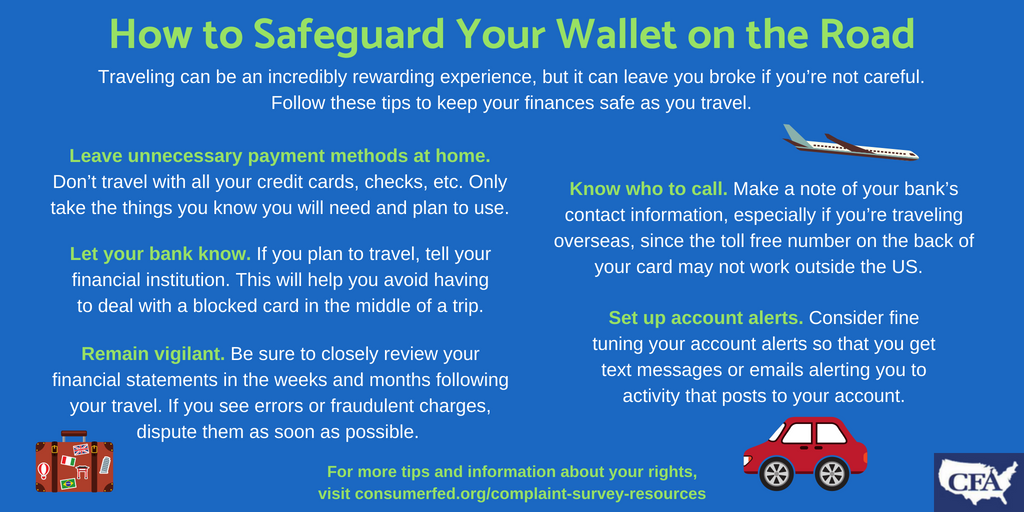Though summer vacations are coming to an end, holiday travel will be ramping up before you know it. And while traveling can be an incredibly rewarding experience — it can leave you broke if you’re not careful! For this blog post, I’m going to assume you know how to budget, as that is the most important step in being able to travel at all. The following tips will help you keep your finances safe as you travel!
- Leave unnecessary payment methods at home. Don’t travel with all your credit cards, checks, etc. Only take the things you know you will need and plan to use.
- Let your bank know. If you plan to travel, tell your financial institution. This will help you avoid having to deal with a blocked card in the middle of a trip.
- Know who to call. If your card suddenly stops working or gets lost, you’ll need to contact your bank to fix the problem. Make a note of your bank’s contact information, especially if you’re traveling overseas, since the toll free number on the back of your card may not work outside the US.
- Set up account alerts. Consider fine tuning your account alerts so that you get text messages or emails alerting you to activity that posts to your account. This will allow you to closely monitor your account without having to login constantly.
- Remain vigilant. Be sure to closely review your financial statements in the weeks and months following your travel. If you see errors or fraudulent charges, dispute them as soon as possible.
As with most things, preparing a bit on the front end can save you a lot of hassle and headache. And even if you’re not planning on traveling anytime soon, many of these tips are useful for every day.

This blog is one of a series of articles contributed by state and local consumer agencies in connection with the annual survey about consumer complaints conducted by Consumer Federation of America. The survey report provides “real life” examples of complaints and tips for consumers. Have a consumer problem or question? Find your state or local consumer agency at https://www.usa.gov/state-consumer.

